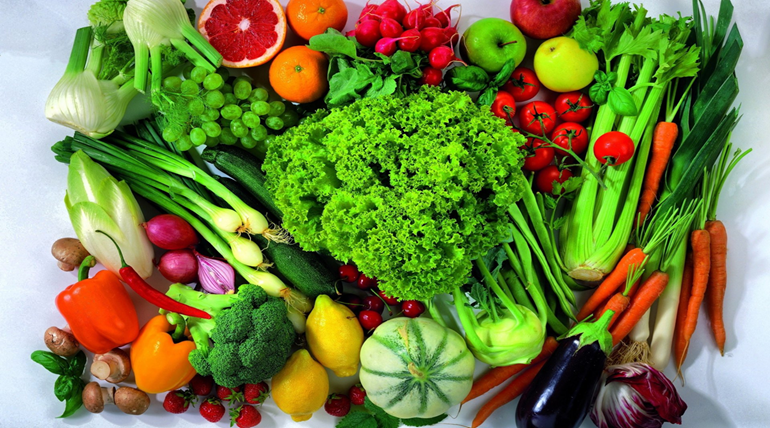Health Benefits of Eating More Vegetables And Tips for Adding Them to Every Meal

1 year ago
Health Benefits of Eating More Vegetables And Tips for Adding Them to Every Meal
In our fastpaced world today, it is easy to overlook the importance of a balanced diet. While many of us are aware of the benefits of fruits and vegetables, they often take a backseat to more convenient or indulgent foods. However, adding more vegetables to your meals can drastically improve your health, energy, and overall well-being.
Let us dive into the health benefits of eating more vegetables and some practical tips for incorporating them into every meal.
The Health Benefits of Eating More Vegetables
- Packed with Nutrients
Vegetables are rich in essential vitamins, minerals, and antioxidants. Nutrients like vitamin C, potassium, folate, and fiber are abundant in many veggies, and they play a key role in strengthening your immune system, supporting heart health, and promoting healthy digestion. - Rich in Fiber
One of the most notable health benefits of vegetables is their high fiber content. Fiber is essential for healthy digestion and can help prevent constipation. It also helps regulate blood sugar levels and keeps you feeling full for longer, which can aid in weight management. - Supports Heart Health
Many vegetables, especially leafy greens and cruciferous veggies like broccoli and cauliflower, contain compounds that promote heart health. These veggies are rich in antioxidants and anti inflammatory properties, which can help reduce the risk of heart disease by lowering blood pressure and cholesterol levels. - Boosts Your Immune System
Vegetables like spinach, kale, and bell peppers are full of vitamins A and C, both of which are crucial for a strong immune system. Regularly consuming a variety of vegetables can help you fight off illnesses and stay healthy year-round. - Supports Healthy Skin
Many vegetables are packed with antioxidants that help combat oxidative stress, which can cause skin damage. Eating a variety of colorful vegetables can keep your skin glowing and youthful by preventing premature aging and supporting collagen production. - Helps Manage Weight
Since vegetables are low in calories but high in fiber and water content, they are great for weight management. They help fill you up without adding a lot of extra calories, making it easier to maintain a healthy weight.
Tips for Adding More Vegetables to Every Meal
Incorporating more vegetables into your daily meals doesn’t have to be complicated or time-consuming.
Here are some simple tips to help you get started:
- Start Your Day with Vegetables
If you typically eat breakfast with little or no vegetables, try adding some to your morning routine. A veggie packed omelette, scrambled eggs with spinach and tomatoes, or a green smoothie are all great ways to begin your day with a dose of nutrition. - Sneak Vegetables into Sauces and Soups
Puree vegetables like carrots, zucchini, or cauliflower and add them to your sauces, soups, and stews. This is an easy way to increase your veggie intake without sacrificing flavor. You can even add vegetables to pasta sauces, curries, or chili to create a richer, more nutrient-dense dish. - Snack on Veggies
Replace unhealthy snacks with raw vegetables. Carrot sticks, cucumber slices, bell pepper strips, or cherry tomatoes make excellent snacks when paired with a healthy dip, like hummus or guacamole. Keep them prepped and ready to go in your fridge for an easy grab-and-go option. - Make Vegetables the Star of the Plate
Instead of having vegetables as a side dish, make them the main event. Load up your plate with a variety of roasted, steamed, or grilled vegetables. Try roasting Brussels sprouts, sweet potatoes, and cauliflower with olive oil and your favorite herbs for a delicious, satisfying meal. - Add Vegetables to Your Favorite Dishes
Whether you are making pasta, stir fry, tacos, or pizza, find ways to add extra vegetables. You can toss spinach into your pasta, pile veggies onto your pizza, or throw extra veggies into your stir fries. Be creative with how you incorporate vegetables into your go to meals. - Try Veggie Noodles or Substitutes
Instead of using traditional pasta or grains, try swapping in zucchini noodles or spaghetti squash for a lower carb, nutrient dense alternative. You can also experiment with cauliflower rice or mashed cauliflower instead of mashed potatoes. - Prep Ahead
One of the best ways to make sure you are getting your veggies is to prep them in advance. Wash, peel, and chop vegetables and store them in containers so they are easy to throw into meals throughout the week. This makes it more likely that you will incorporate them into your meals when you are short on time. - Mix Veggies into Smoothies
If you are not a fan of eating vegetables on their own, try blending them into smoothies. Spinach, kale, and cucumbers are all mild in flavor and can easily be hidden in fruit based smoothies, providing a nutrient boost without affecting the taste.
Conclusion
Incorporating more vegetables into your daily meals is one of the easiest ways to improve your health and well-being.
By following these simple tips and making vegetables a regular part of your meals, you will be nourishing your body with essential nutrients, boosting your energy levels, and improving your overall health.
Start small, be creative, and enjoy the many benefits that come with eating more vegetables.
©everlastcyber™





0 Comment